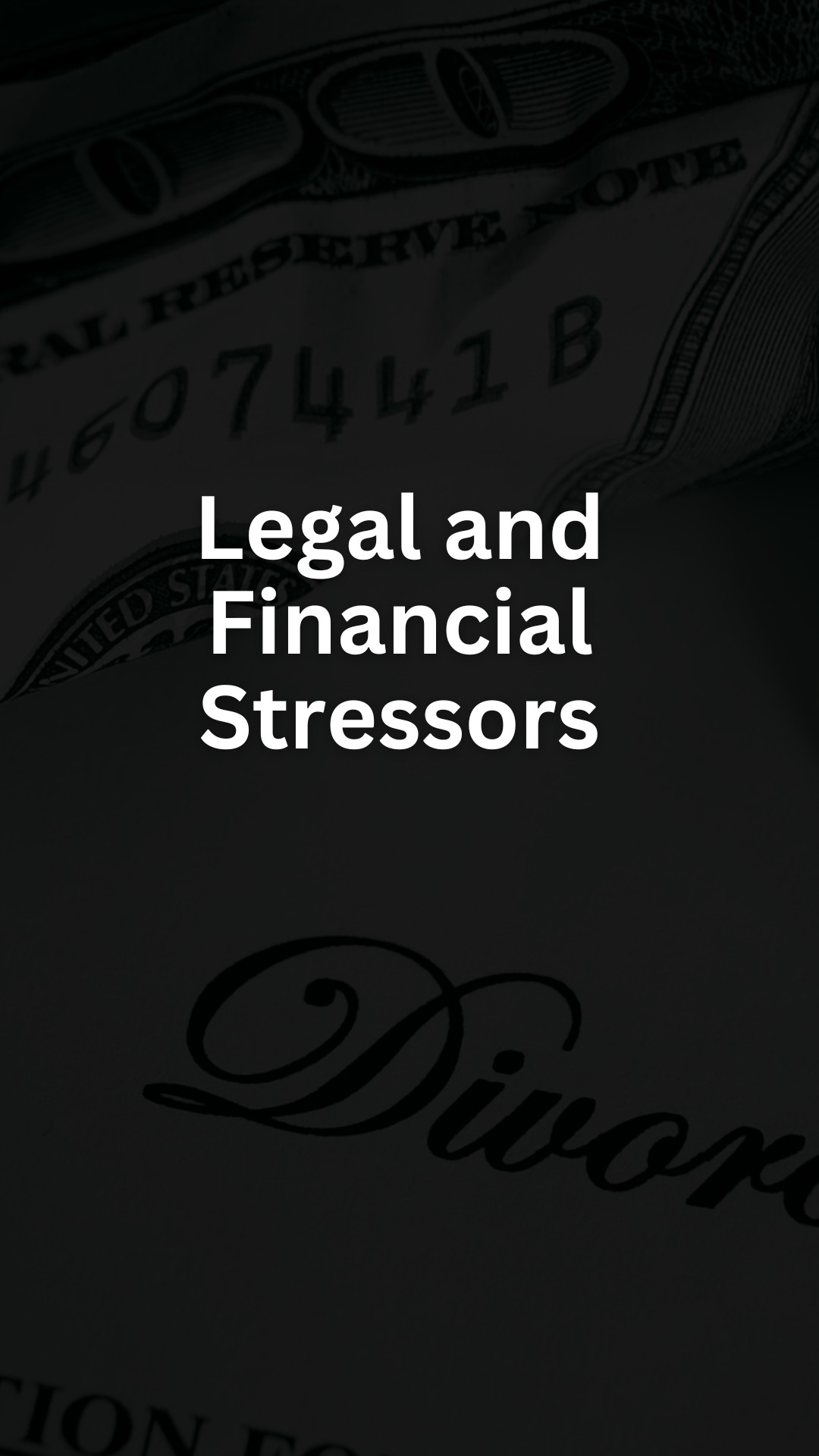Divorce can be a difficult experience that affects your mental health in many ways. It can bring feelings of sadness, anger, and even relief.
Each person’s experience is unique, but recognizing the common emotional challenges can help you navigate this tough time.
You might find that your mood changes a lot. Sometimes, you could feel angry or resentful; other times, you may feel lonely or anxious about the future.
These feelings are normal and part of the process of adjusting to a new life.
Understanding these emotions can help you find the strength to move forward. Many people find that addressing their emotions early on leads to healing and even personal growth.
The Emotional Stages of Divorce

Divorce can lead to a range of emotional experiences. These stages often include feelings of denial, anger, bargaining, depression, and finally, acceptance.
Denial and Isolation
In the beginning, you might find it hard to believe that your marriage is ending. This stage is called denial. You might think things will get better or that it’s just a phase.
To cope, you may avoid talking about the divorce. You might isolate yourself from friends and family.
This is a natural response, but it can be harmful if it goes on too long. Reaching out to a support group can be helpful.
Anger
After denial, you might start feeling anger. This anger can be directed at your spouse, yourself, or even the situation.
It’s natural to feel angry about the loss and the changes. You might find yourself asking why this is happening to you. You could even lash out at those around you.
Recognizing these feelings and finding a healthy outlet can help manage this anger.
Bargaining
Bargaining is another emotional stage. You might try to make deals with yourself or your spouse to fix things.
You could promise to change something about yourself or ask your spouse to change. You might think, “If only I had done this differently…”
This stage is about trying to regain control. It can be exhausting and often doesn’t lead to lasting solutions.
Depression
When bargaining doesn’t work, you might feel a deep sense of sadness. This is the depression stage.
You might feel hopeless or think that life will never be good again. Daily tasks can become hard to manage.
It’s common to withdraw even more from loved ones. This stage can be the longest and most challenging.
It’s crucial to seek help if these feelings become overwhelming. Therapy and support groups can make a big difference.
Acceptance
Finally, acceptance brings a sense of peace. You begin to understand that the marriage is over and start to see a future without your spouse.
It doesn’t mean you’re completely happy about it, but you come to terms with the situation. You start to rebuild your life and find new interests.
Acceptance allows you to move forward. It may take time, but eventually, you will feel more settled and hopeful about the future.
Short-Term Psychological Effects

Divorce can cause immediate changes in your emotions and thoughts. You might feel stress, anxiety, and a drop in self-esteem.
Stress Responses
After a divorce, you may notice an increase in your stress levels. This stress can come from many sources, like splitting assets, adjusting to a new living situation, and navigating the legal process.
You might have trouble sleeping, feel restless, or experience headaches. It’s common to feel overwhelmed as you try to manage these new challenges in your life.
Anxiety and Uncertainty
Anxiety often spikes after the divorce process begins. You might worry about your future, finances, or relationships with friends and family.
This anxiety can make it hard to focus or make decisions. You might feel like you are constantly on edge, waiting for the next problem to arise.
Impact on Self-Esteem
Divorce can significantly impact your self-esteem. You might start to doubt yourself and question your worth.
This is particularly true if the divorce was not your choice or if there were conflicts involved. These feelings can make you feel lonely and disconnected from others, which can further harm your self-esteem.
Long-Term Psychological Effects

Divorce can have lasting effects on your mental and emotional well-being. It can lead to both positive and negative changes in your life.
Post-Divorce Adjustment
After a divorce, you may need time to adjust to new routines and environments. This period can be stressful as you might feel uncertainty about the future.
You may struggle with loneliness or a loss of identity, especially if you’ve been married for a long time.
Children can also be impacted, experiencing feelings of confusion and distress. You might notice changes in their behavior or academic performance. Therapy and support groups can help you and your family navigate these adjustments more smoothly.
Resilience and Growth
Despite the challenges, many people discover new strengths after a divorce. You might develop greater resilience and a deeper understanding of yourself.
This can lead to personal growth and self-improvement. You may find that you are more independent and capable than you realized.
New opportunities for hobbies, friendships, and career advancements can arise, helping you rebuild your life in a positive way.
Lasting Emotional Issues
Some emotional issues may persist long after the divorce is finalized. You could experience ongoing feelings of sadness, anger, or anxiety.
Long-term emotional issues can also affect your future relationships. Trust and intimacy might be challenging to rebuild. Seeking therapy can provide you with tools to manage these feelings and help you move forward.
Effects on Children

Divorce can impact children differently depending on their age and coping strategies. The long-term consequences can vary greatly.
Age-based Responses
Young children might feel anxious and confused. They often believe they are to blame for the divorce and fear being abandoned.
School-age children might understand more but can feel divided loyalty and shame, often experiencing academic struggles.
Teenagers may exhibit anger and rebellion, seeking independence sooner. They might struggle with trust in their own relationships.
Coping Mechanisms
Children use various methods to cope with their parents’ separation.
Some seek support from friends, family, or school counselors. Engaging in extracurricular activities helps provide a distraction and sense of normalcy.
Open communication with both parents can also ease stress. Encouraging expressing feelings through talking or art can be beneficial.
Long-Term Outcomes for Children
Long-term effects depend on several factors. A stable post-divorce environment helps.
Children with ongoing conflict between parents tend to face more challenges. Some children develop resilience and adaptability.
Others might struggle with emotional and trust issues in future relationships. Academic performance can improve or decline based on support systems and personal circumstances.
Coping Strategies for Adults

Adults going through a divorce need effective ways to manage their stress. Key strategies include building strong support networks, seeking therapy, and practicing self-care.
Support Networks
Lean on family and friends. They can offer emotional support and practical help.
Joining support groups can connect you with others who understand what you’re going through.
Create a list of trusted people you can reach out to.
Communicate openly about your feelings. Remember, it’s okay to ask for help. Sharing experiences can ease the emotional burden.
Therapy and Counseling
Professional help can make a big difference.
Therapists can provide coping tools and strategies tailored for your unique situation. They can offer a safe space to express feelings.
Cognitive-behavioral therapy (CBT) is one effective method. Counseling sessions can help you process emotions and develop a positive outlook. Make appointments regularly to stay on track.
Self-Care Practices
Take care of your physical and mental health. Exercise, eat well, and get enough sleep. These basics are crucial for maintaining your overall well-being.
Engage in activities that bring you joy. Journaling, meditation, and hobbies can be beneficial.
Make time for yourself each day to relax and recharge. This routine can help you regain focus and strength.
Gender Differences in Impact

The impact of divorce can vary greatly between men and women. Emotional responses, societal pressures, and financial burdens often differ based on gender.
Emotional Experience
Women often report feeling a mix of relief and sadness after a divorce. They might experience a strong sense of loss but also a newfound sense of independence.
Men might struggle more with the sudden change in daily routines and emotional support, sometimes leading to loneliness.
Many men report feeling isolated since they often have fewer close friends to confide in. This emotional isolation can lead to higher rates of depression.
Women, on the other hand, often have stronger social networks that provide emotional support during the transition.
Societal Expectations
Society often places different expectations on men and women after a divorce.
Women may face more stigma, being labeled as single mothers. They might be judged more harshly for dating or remarrying.
Men, conversely, might be encouraged to move on quickly and are less likely to be judged for entering new relationships.
Women also might feel pressure to show resilience and capability in caring for children and managing households alone.
Men often encounter expectations to be financially supportive even if they don’t have custody.
Both genders experience pressures, but the forms they take can be quite different.
Economic Challenges
Women often face greater financial challenges post-divorce. They might take on the primary caregiving role, which can limit their income-earning potential.
Childcare responsibilities often fall on women, reducing their ability to work long hours or take higher-paying jobs. This can lead to greater economic strain.
Men, while often experiencing financial stress, usually maintain or improve their financial status post-divorce.
They may face alimony or child support payments, but these obligations are often less burdensome than total household management. Nevertheless, they may struggle with financial planning due to sudden single-income stress.
Divorce and Mental Health Disorders

Divorce can impact mental health significantly, increasing the risk of disorders and highlighting the importance of seeking professional help.
Many individuals experience anxiety, depression, and other mental health issues as a result.
Prevalence of Disorders
Studies show that divorce can lead to an increase in mental health disorders. Anxiety and depression are the most common, affecting many people who go through this life change.
Children of divorced parents are also at higher risk.
Research indicates that divorced individuals might experience higher levels of stress. This stress can lead to conditions like post-traumatic stress disorder (PTSD).
Divorce can also affect sleep patterns, leading to insomnia and other sleep-related issues.
Seeking Professional Help
Getting professional help can make a big difference.
Therapists and counselors can provide support and strategies to cope with the emotional stress.
Cognitive behavioral therapy (CBT) is often used to help individuals manage their thoughts and emotions.
Support groups offer another helpful resource. Sharing experiences with others who understand what you’re going through can lessen feelings of isolation.
Online resources, like therapy apps and mental health hotlines, also provide accessible options for support.
The Role of Communication

Communication is crucial during and after a divorce. Talking effectively can reduce conflicts, help your children cope, and establish new boundaries while moving forward.
Effective Dialogue
Having open and honest conversations can make the process smoother. This means listening to each other without interrupting.
Try to stay calm and avoid blaming each other.
If arguments happen, take a break and come back when you’re both calmer. Using “I” statements like “I feel” instead of “You always” can reduce defensiveness.
You might also consider mediation if talking is hard.
Communication with Children
It’s important to talk to your children about what’s happening.
Be honest but keep it simple and appropriate for their age.
Let them know it’s not their fault and that both parents love them very much.
Encourage them to share their feelings and listen without judgment.
Maintain a routine to give them a sense of stability. Reassure them about what will stay the same in their lives.
Reestablishing Boundaries
New boundaries can help form a healthy post-divorce relationship. Discussing and agreeing on rules about visits, finances, and communication can prevent problems. Make sure each person respects these agreements.
Don’t forget to set personal boundaries for yourself too. It’s ok to take time for self-care and to limit how much time you spend talking about the divorce. Setting clear limits can help you both adjust to your new lives.
Legal and Financial Stressors

Divorce can bring about difficult legal challenges and financial uncertainties. It’s important to be aware of the processes and how they might impact you.
Navigating Divorce Proceedings
When going through a divorce, you will need to handle various legal tasks. These tasks may include filing paperwork, attending court hearings, and negotiating settlements. You might also need a lawyer to guide you through the process.
Legal fees can add up quickly. So, staying organized and keeping track of deadlines is important. Conflicts over child custody or property might also come up during proceedings, adding to stress.
Financial Security Post-Divorce
After a divorce, you may face changes in your financial situation. Splitting assets and debt can be complicated. You may need to figure out how to manage finances on a single income.
Creating a new budget is crucial. You might also need to consider alimony or child support payments. Ensuring long-term financial stability involves planning and sometimes seeking advice from financial experts.
Social Changes and Adaptation

Divorce often leads to major social changes. You may find your social circles shifting and need to adjust to new dating situations.
Shifts in Social Circles
After a divorce, your social circles can change significantly. Friends and family might take sides, leaving you to form new relationships. You may lose some old friends but gain new ones who understand your current life better.
Children can also affect your social life. You may spend more time with other single parents. Schools and extracurricular activities become new social hubs. It’s common for your social calendar to revolve around your kids’ schedules.
Workplace relationships can also shift. Co-workers may feel awkward or invasive, leading you to seek support outside of work. Finding a community or support group tailored to people who’ve divorced can help. Online groups can also offer a sense of connection without the pressure of physical meetups.
Dating after Divorce
Re-entering the dating scene can be daunting. Dating after a long marriage means adjusting to new norms. The dating landscape has likely changed since you were last single.
Many people start with online dating. Creating a profile can be an empowering first step. Safety and honesty are key in these new interactions. Always meet in public places and don’t rush into anything.
Your experiences as a divorced person may shape your approach to new relationships. Some people look for partners with similar experiences. Others use this as a chance to meet different types of people.
Balancing dating with parenting and work requires careful scheduling. Introduce new partners cautiously to your children and family. Take your time to ensure you and your new partner are truly compatible before making big decisions.
Frequently Asked Questions

Divorce can have various psychological impacts on both adults and children. Understanding these effects can help you navigate through the emotional challenges.
How does divorce affect mental health in adults?
Divorce can cause anxiety, depression, and stress. You might feel a sense of loss and emotional pain. It’s common to experience difficulties in sleeping and changes in appetite.
What are the long-term psychological effects of divorce on children?
Children might face issues like feelings of guilt, anger, or sadness. These feelings can affect their behavior and academic performance. Some children may also struggle with forming relationships in the future.
What are the emotional stages one goes through during a divorce?
You might go through stages like denial, anger, bargaining, depression, and acceptance. Each stage can vary in duration and intensity. It’s important to allow yourself to feel these emotions.
How can individuals cope with the mental challenges of a divorce?
Talking to friends, family, or a therapist can be helpful. Engaging in physical activities and hobbies can improve your mood. Practicing mindfulness and self-care is also important.
What is the impact of divorce on men’s emotional well-being?
Men might experience sadness, loneliness, and a sense of failure. They may find it hard to express their emotions. Seeking support from friends, family, or professionals can be beneficial.
How long is the emotional recovery process post-divorce?
The recovery process varies for everyone. It can take months or even years to feel emotionally stable again.
Being patient with yourself and seeking support can help speed up the process.